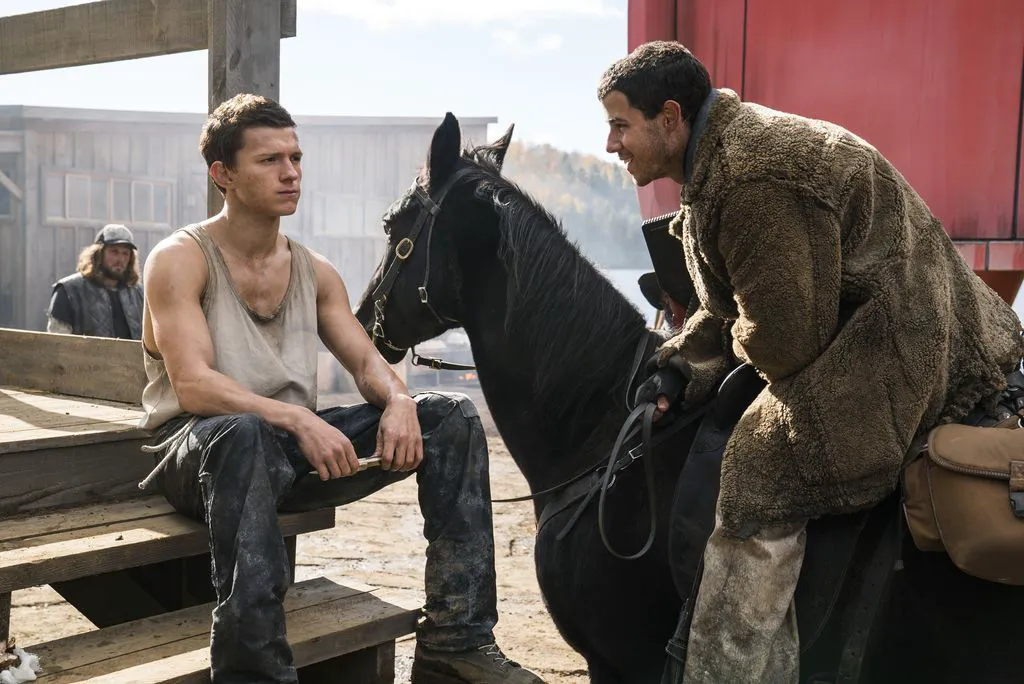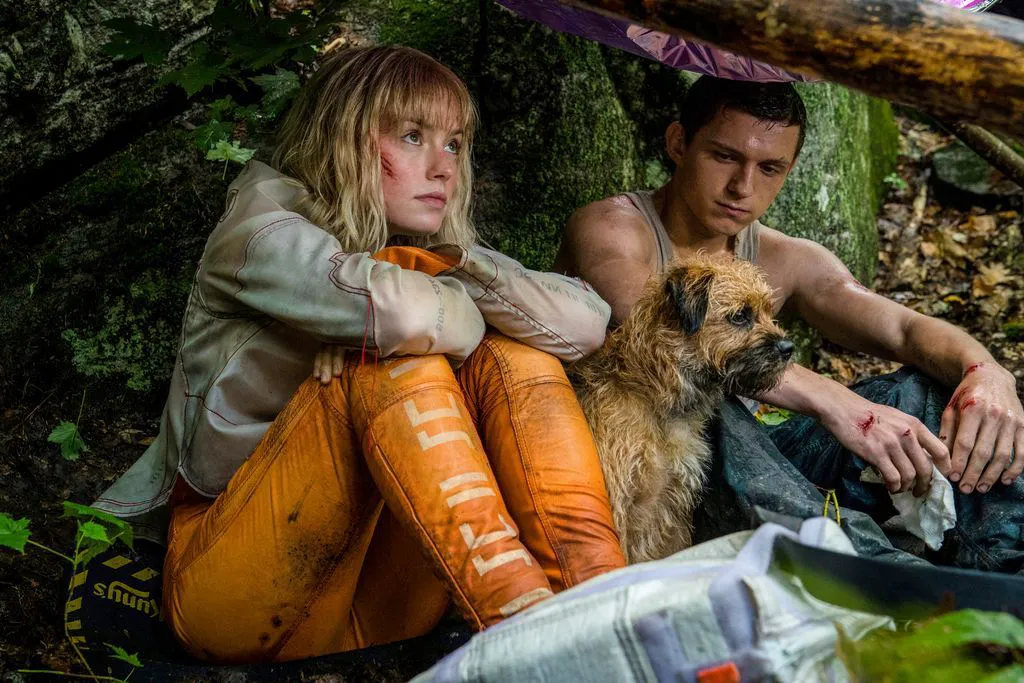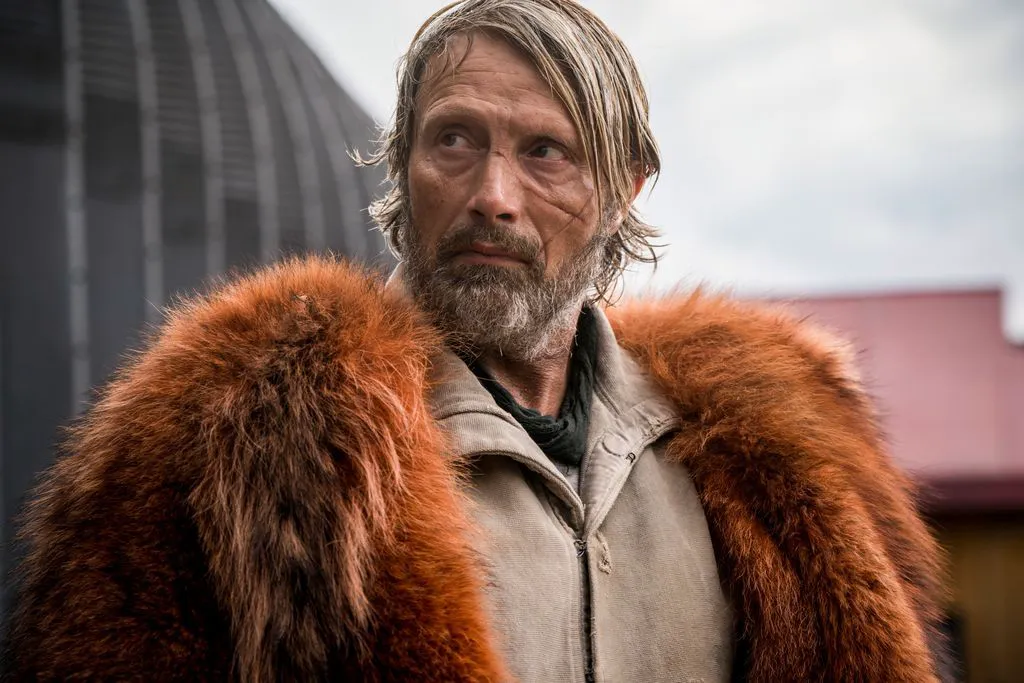Echoes of Disappointment: A Review of “Chaos Walking”
The past year has been turbulent for many films. While constant postponements offered studios a chance to recoup some of their investments, large-scale projects risked losing momentum due to audience fatigue or simply becoming irrelevant. Among these, “Chaos Walking” stands out as a particularly troubled production. This adaptation of Patrick Ness’s fantasy trilogy had been in development since 2011, with Charlie Kaufman initially considered for the screenplay and Robert Zemeckis for directing, before Doug Liman (“The Bourne Identity,” “Edge of Tomorrow”) took the helm. However, the journey didn’t end there: after unfavorable test screenings, reshoots, a new edit, and, of course, a budget increase followed.

Tom Holland as Todd Hewitt in “Chaos Walking”
A World Where Thoughts Are Heard
In the (not-so-)distant future, on the colonized planet New World, all inhabitants share a peculiar trait: they think aloud. It’s a literal manifestation of the affirmation “thoughts are material.” Judgments, ideas, and fantasies take on a tangible form, blurring the line between imagination and reality. These thoughts often merge into a cacophony of noise that must be controlled to keep one’s intentions secret. This is where Todd Hewitt (played by the charming Tom Holland) struggles. He can barely control his thoughts, and when Viola (the detached Daisy Ridley) arrives, his attempts at secrecy completely fail. The stranger’s arrival with colonists from Earth is timely, as Prentisstown has no women. They were supposedly killed by the planet’s native inhabitants, the Spackle, but the situation with women in this world is more complex – for some reason, their thoughts, unlike men’s, remain private.

Daisy Ridley as Viola
Lost in Translation: The Film’s Shortcomings
It’s challenging to convey the intricacies of this universe to a casual viewer in a single synopsis, and even the nearly two-hour film struggles to do so fully. These blockbuster adaptations of dystopian fantasies, which dominated cinemas in the past decade, often require a leap of faith. No matter how absurd the initial premise of an alternate world, viewers are expected to accept it unquestioningly. Teenagers running through a maze? An annual gladiatorial contest? Divisions into factions of simpletons and daring athletes? Once you reconcile with these configurations, many questions resolve themselves. However, “Chaos Walking” fails to achieve this necessary suspension of disbelief. The audible thoughts, the “Chaos” itself, which works well on paper, feels like a sputtering engine on screen. The noise either distracts from the plot, becomes tiresome, or simplifies the thought process to the point where you wish they’d remove all the aliens and spaceships and focus on the boy and girl who wander around and giggle when he thinks about how beautiful she is (the awkwardness of puberty in full swing).
Admittedly, watching Tom Holland blush and fumble around Daisy is occasionally amusing, and there’s undeniable chemistry between the actors. However, Viola herself is perplexing. She resembles a daughter (or granddaughter?) of Leeloo from “The Fifth Element” (orange pants with suspenders, a short haircut, and initial silence), and her character remains one-dimensional and purely functional, much like Todd himself.

Mads Mikkelsen as Mayor Prentiss
Gender Stereotypes and Missed Opportunities
Their journey through New World is underscored by gender stereotypes, implanted from birth and constantly amplified by the unique form of communication. Mayor Prentiss (Mads Mikkelsen) champions ultra-masculinity (undeniably toxic), violence, and dominance. Poor Todd is forbidden from feeling sadness, crying, or falling in love. It seems like a relevant attempt to challenge the patriarchy and explore masculinity in a post-apocalyptic setting, which was innovative for a young adult dystopia published in 2008. However, this idea, like other elements of the film, remains unresolved. The filmmakers never delve into femininity (women’s thoughts are unheard), and Viola doesn’t attempt to connect with her companion’s emotional state or respond to his armored sensitivity.
“Chaos Walking” vs. “Love and Monsters”
In comparison, last year’s “Love and Monsters,” a less ambitious project (with a budget four times smaller), but one that clearly understands its strengths, shines. Michael Matthews’ film also tells the story of a boy with a dog (Holland’s character is followed by a shaggy pet) who tries to save a girl in a post-apocalyptic world teeming with monsters. The film is purely genre-driven, without dramatic epic undertones (perhaps why it feels so sincere), successfully challenges masculinity by critiquing gender conventions, and doesn’t forget the charm of a coming-of-age story. This is precisely what “Chaos Walking” lacks: a heartfelt coming-of-age tone that could have redeemed the flaws of its fictional world.